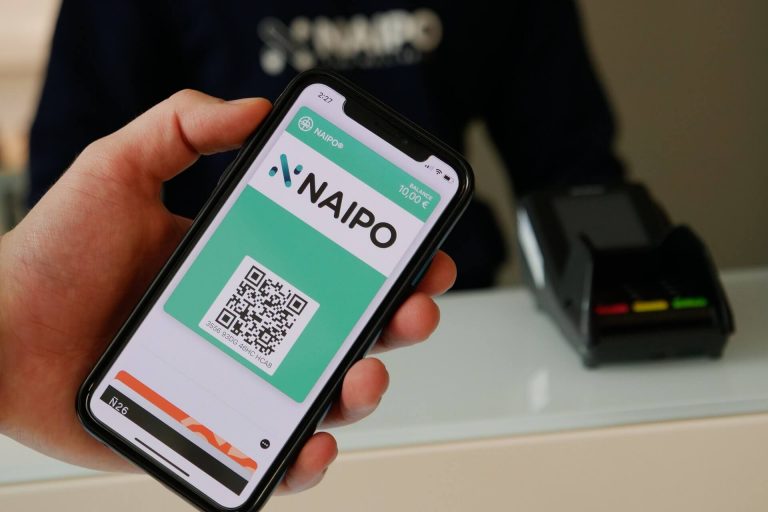The big appeal behind credit cards has always been the opportunity for users to defer payment for something they want immediately. The idea is all about convenience. However, a new kid on the block is aiming to grab a slice of the action enjoyed by credit cards. It’s called “Buy Now, Pay Later”, BNPL for short, and it’s very probable that you’ve already heard of it or have already used a similar service at some point.
- The buy now pay later (BNPL) trend is becoming popular across Asia by enabling consumers to defer payments and access credit
- Some pure players operating in the market include Akulaku (Indonesia), hoolah, and Atome (Singapore)
- The uptake of the payment type across APAC has been fuelled by Gen Z and millennial shoppers
A study by Coherent Market Insights estimates that the global BNPL was valued at US$7.3 billion in 2019, but is expected to reach US$33.6 billion in 2027, growing at an annual rate of 21.2% over the next six years. During the forecast period, APAC is set to be the fastest-growing region owing to the increasing number of mobile Internet users in the region.
In fact, usage of BNPL products has grown tremendously over the past year amid the Covid-19 stay-at-home orders. A study by financial comparison platform Finder found that about 38% of Singapore citizens, or 1.1 million people, have used a BNPL service. Generally, in Asia, the BNPL market comprises incumbent banks that have launched interest-free BNPL solutions on top of credit card offerings, e-commerce platforms, as well as retailers that are proposing their own payments installment models.
Oh, and not forgetting the independent fintech startups that have been leading this charge. Tech Wire Asia looks at five fintech startups from Asia that specialize in BNPL, and have made notable strides over the past years.
Atome (Singapore)
Atome is a Singaporean BNPL player that allows users to split their bills into three equal payments over two months. Atome charges zero interest and zeroes service fees.
Since its launch in 2019, Atome has grown into one of Asia’s largest BNPL platforms. It’s partnered with over 2,000 online and offline retailers in six markets comprising Singapore, Indonesia, Malaysia, Hong Kong, Vietnam, and mainland China.
The startup recently inked a partnership with AsiaPay to expand its reach amongst online and offline merchants in the Asia Pacific (APAC) region. Atome is part of Advance.AI, a Series-C AI-driven technology company headquartered in Singapore and with a presence across Southeast Asia, India, and China.
hoolah (Singapore)
Founded in February 2018, hoolah is Asia’s leading omnichannel BNPL company headquartered in Singapore. The BNPL provider ventured into Malaysia in 2019, and has since partnered with global and local merchants. The platform allows consumers to purchase what they need now, and pay later via 3 interest-free monthly repayments. In September 2020, hoolah extended its BNPL option to an in-store solution as well. hoolah managed to secure an undisclosed amount of 8-figure capital injection during its Series A funding round led by Allectus Capital, a venture firm that is part of private equity firm ICM.
Akulaku (Indonesia)
Founded in 2016, Akulaku is a fintech startup from Indonesia that specialized in online credit, wealth management, and digital banking. It started as a virtual credit card provider before building its own e-commerce platform and branching into other business lines including wealth management and peer-to-peer (P2P) lending.
Akulaku’s online installments-based shopping platform features products from home appliances to travel and phone recharging services. It allows users to shop by using installments without needing to own a credit card. According to reports, its market share in the installment sector stands between 70% and 80%. As of July 2020, the company served a total of six million users and recorded an annual transaction value of over US$1.5 billion. Akulaku is headquartered in Pasig with operations in the Philippines, Vietnam, and Malaysia.
Pine Labs (India)
An Indian merchant platform company that provides financing and last-mile retail transaction tech, Pine Labs’ payment platform processes easy monthly installment transactions across banks and product categories using a single POS terminal. In India, Pine Labs is the leader in offline BNPL services with a whopping 95% market share. It recently partnered up with Mastercard to further expand in Southeast Asia and bring its BNPL capabilities to Thailand and the Philippines in early 2021, to be followed in short order by Vietnam, Singapore, and Indonesia.
Pine Labs currently powers nearly 35 different credit issuers, debit and credit cards, non-banking financial companies, and other organizations to deliver pay-later services at around 150,000 merchant outlets all across India, covering about 100 different brands. Its key investors include Mastercard, Sequoia India, Actis Capital, Temasek, PayPal, and Sofina.
Paidy (Japan)
Launched in 2014, Paidy is a Japanese fintech startup that provides point of sale (POS) financing to millions of Japanese consumers – requiring only their name, email address, and mobile phone to record transactions. The company uses proprietary machine learning algorithms to score creditworthiness, underwrite transactions, and guarantee payments to merchants. At the end of each month, customers receive a consolidated bill that includes invoices for all purchases through Paidy during the last 30 days.
These outstanding bills can be paid in full or via an installment plan in cash at a local convenience store, direct debit, or via bank transfers. Paidy currently provides its BNPL installment payment option to Amazon’s Japanese platform. The startup is backed by PayPal Ventures, Visa, and Arbor Ventures among others, and has raised US$281 million in debt and equity so far.



















